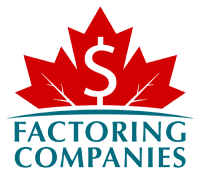Invoice Factoring for Government Contractors
The world of government contracting has its high points and pitfalls. While working on a government contract opens up several opportunities for profitability, reputation improvement, and consistent year-after-year growth. However, governments are notorious for prolonged payment timelines.
As a government contractor, you know that consistent cash flow is crucial to the success of your business, so you cannot afford to wait months for your customers to settle their debts. This is one of the many unique challenges of the government contracting industry that you must combat if you want your business to grow and thrive. That’s where invoice factoring comes in.
Government Contractor Factoring vs. Bank Loans
Invoice factoring is one of the most accessible financial services available today. In contrast to the prolonged application process and stringent eligibility requirements of bank loans, invoice factoring companies prioritize fast approval, instant payments, and accessible financing. This means that even small businesses that probably won’t get approved for a traditional loan have the potential to obtain much-needed funding.
The invoice factoring process involves selling your outstanding client invoices to the factoring company, which will then advance you a percentage of the total invoice value before handling the collections process for you. Because you are being advanced money that is already owed to your business, this is a debt-free financing solution offered for a small fee. If you need access to cash flow but you’re finding it difficult to get approved for a traditional loan (or you can’t wait for the bank to eventually pay out the loan), invoice factoring is a valuable alternative.

Top Financial Challenges in the Government Contractor Industry
As a government contractor, you may face various financial challenges and uncertainties driven by supply chain disruptions, labor shortages, and record inflation levels.
How to Run a Successful Government Contractor Company
Running a successful government contractor company requires careful planning and attention to detail. Here are a few tips to help you stay on track:
Overcoming Financial Obstacles with Invoice Factoring
Securing contracts with government agencies can be profitable, yet it often entails lengthy waiting periods for payment from the government agency. This delay can strain your cash flow, especially when there’s a need to pay workers and contractors upfront. One effective solution is government contract factoring, which is a form of invoice financing tailored for entities that work with government projects. Factoring government invoices entails selling your unpaid invoice(s) to a factoring company that provides an advance on a percentage of the invoice amount, typically within a short timeframe post-approval. Unlike traditional loans, factoring is not a loan, but a financing solution that turns your government receivables financing into immediate cash, enabling you to continue with your government work without financial hiccups.
The factoring process is fairly straightforward: Once a job is completed, you submit your invoices to a factoring company. The factoring company advances a large portion of the invoice value, sometimes up to 90%, after which they collect the payment directly from the government entity. Once the invoice is paid, the factoring company deducts a factoring fee and remits the remaining balance to you. This financing option is particularly beneficial as it not only alleviates the cash flow challenges but also eliminates the waiting period for government agencies to pay. Moreover, government contractor factoring firms have the experience and understanding of working with government contracts, ensuring compliance with all requisite conditions of the factoring arrangement.
Government contract factoring services are a viable route for medium-sized government contractors who might find traditional financing and factoring solutions less accessible. By selling your government invoices, you unlock immediate funds to cover operational costs, ensuring the successful delivery of government projects. Invoice factoring for government contractors essentially accelerates the invoice payments issued to government agencies, offering a seamless way to manage the financial intricacies of landing a government contract. Through a trusted factoring partner, you can effectively navigate the fiscal challenges and handle your government clients with enhanced financial stability.
Financing Options for Government Contractors Companies
As a government contractor, you have a variety of financing options to choose from. In addition to invoice factoring, some other options to consider include:
There are numerous industry-specific factoring companies that know exactly what you need as a government contractor. A factoring company with experience in the government contractor industry will know exactly how to collect payment from your customers, what regulations need to be followed, what forms need to be filled out, which T’s to cross, and which I’s to dot.
Factoring Companies Canada has put together a Factoring Guide to give you all the information you need about invoice factoring and help you compare the best factoring companies in the industry so you can find one that is uniquely suited to your needs. Alternatively, request a factoring quote today, and we will do the work of finding the right factoring company for you.
Get an instant factoring estimate
Factoring results estimation is based on the total dollar value of your invoices.
The actual rates may differ.
CLAIM YOUR FREE FACTORING QUOTE TODAY!
PREFER TO TALK?
You can reach us at
1-866-477-1778
Get an instant factoring estimate
Factoring results estimation is based on the total dollar value of your invoices.
The actual rates may differ.
CLAIM YOUR FREE FACTORING QUOTE TODAY!
PREFER TO TALK? You can reach us at 1-866-477-1778

